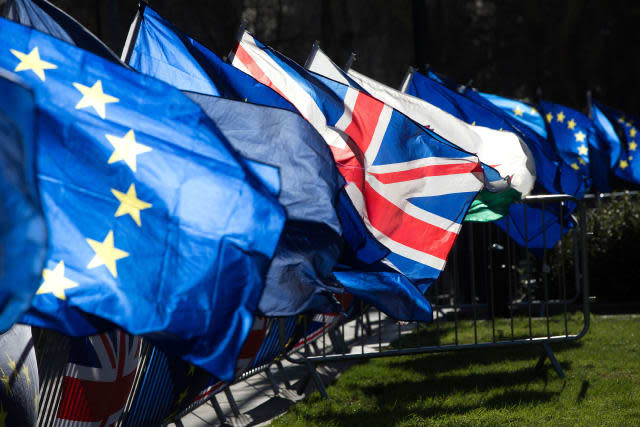Coronavirus crisis should concentrate minds of EU negotiators, Gove says

The coronavirus crisis should “concentrate the minds” of EU negotiators to strike a trade deal, Michael Gove has said, as the UK urged European political leaders to intervene.
The Cabinet Office minister agreed that only “limited progress” has been made after a second round of negotiations but continued to insist no extension would be requested.
His evidence at a select committee on Monday came after Downing Street called for a “political injection” from EU leaders to break the deadlock on key areas.
Michel Barnier, the bloc’s chief negotiator, offered a scathing assessment of the “disappointing” round of talks that took place over video conferencing last week.
The lack of progress and the pandemic causing unprecedented disruption has led to heightened calls for an extension to the transition period past the end of the year to prevent further chaos.
But Mr Gove said: “Limited progress was made in the talks but we believe it’s still entirely possible to conclude negotiations on the timetable that has been outlined.
“I think the Covid crisis in some respects should concentrate the minds of EU negotiators in enforcing the vital importance of coming to a conclusion.”
Mr Gove cautioned the Committee on the Future Relationship with the EU that “I’m not very good at predictions”, but he said the odds of reaching a deal “were definitely better than two to one”.
The grilling, which was briefly interrupted by a cat’s miaow and a dog barking in the latest oddities of Parliament under lockdown, also saw the Chancellor of the Duchy of Lancaster agree to publish the UK’s draft legal text in a “matter of weeks”.
He said 47 civil servants have been diverted away from Brexit transition planning to work on the Covid-19 crisis, with the end of June deadline for agreeing an extension to the transition period looming.
Earlier in the day, No 10 indicated that the failure was on the EU side and said Mr Barnier’s political masters need to move the negotiations forward.
Mr Barnier on Friday said the goal of making tangible progress had only been “very partially met” and “the UK did not wish to commit seriously on a number of fundamental points”.
He warned the “clock was ticking” and said Britain cannot both slow down trade talks on key areas while refusing to agree to extend the transition period.
But No 10 accused the EU side of failing to accept the “political realities” of the UK’s newly independent status.
A spokesman said: “We are ready to keep talking but that does not make us any more likely to agree the EU’s proposals in areas where they are not taking into account the UK’s status as an independent state.
“All we are seeking is an agreement based on precedent which respects the sovereignty of both sides.
“Clearly there will need to be political movement on the EU side to move negotiations forward, particularly on fisheries and level playing field issues, in order to help find a balanced solution which reflects the political realities on both sides.”
2. If we are to make progress now, we need to focus on agreeing a future relationship that has a comprehensive FTA at its core, like those the EU has agreed elsewhere.
— David Frost (@DavidGHFrost) April 24, 2020
There is frustration in Westminster about the mandate, signed off by EU leaders, which gives Mr Barnier his negotiating objectives.
Key stumbling blocks include access to UK waters for EU fishing boats and the “level playing field” demands which are designed to prevent unfair competition between the neighbouring powers on issues including workers’ rights, environmental protection and state subsidies.
“What we want is an agreement which is based on precedent, what the EU is seeking to do is impose conditions upon us which it has not required in other free trade agreements which it has agreed with sovereign countries around the world,” the Prime Minister’s spokesman said.
The transition period, which kept the UK aligned to the EU’s single market and customs union rules to allow trade to flow smoothly after Brexit, expires at the end of the year unless both sides agree to an extension – something Prime Minister Boris Johnson has ruled out.


